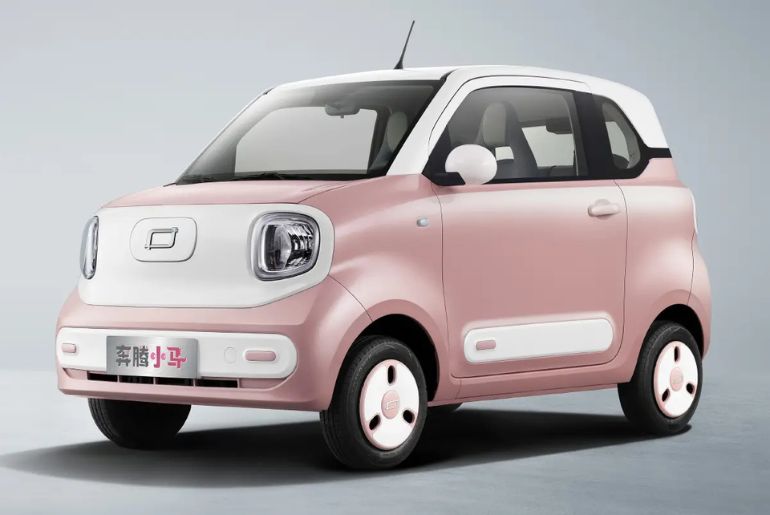In a move that further cements China’s dominance in the affordable electric vehicle market, state-owned automaker FAW has launched the Bestune Pony EV, a compact city car priced as low as 34,900 yuan (~$4,900). With this aggressive pricing, the Pony EV becomes one of the most affordable electric vehicles in the world, targeting urban commuters seeking budget-friendly, zero-emission mobility.
The Bestune Pony EV is part of a growing wave of ultra-low-cost electric vehicles flooding the Chinese market. The car’s compact dimensions—approximately 3 metres in length and 1.5 metres in width—make it ideal for navigating crowded city streets and tight parking spaces. Its boxy kei car–inspired design and dual-tone paint schemes give it a stylish, playful look aimed at younger, urban consumers.
Despite its small stature and price, the Pony EV offers practical performance features. It is powered by a 42-horsepower rear-mounted electric motor paired with an 18.11 kWh lithium iron phosphate (LFP) battery from CATL, delivering a maximum range of 222 kilometres (CLTC cycle).
The new electric microcar is available in five trim levels, with prices ranging from 34,900 yuan (~$4,900) to 45,900 yuan (~$6,300), all offering the same range. While it’s not designed for long highway drives, its performance and range are well-suited for daily city commutes and short intercity trips.
This launch adds to the booming micro-EV trend in China, where models such as the Wuling Hongguang Mini EV, Chery QQ Ice Cream, and Geely Panda Mini have found massive popularity. These vehicles cater to cost-conscious drivers looking for electric mobility without the frills of larger, more expensive EVs.
FAW’s latest offering demonstrates how Chinese automakers are reshaping the EV landscape by making electric transportation more accessible than ever before. As countries across the world continue grappling with EV affordability, China’s micro-EV movement may serve as a blueprint for low-cost, high-volume adoption.
With the Pony EV, FAW not only enters this competitive segment but also sets a new benchmark for value, reinforcing China’s role as a global innovator in the future of urban electric mobility.

